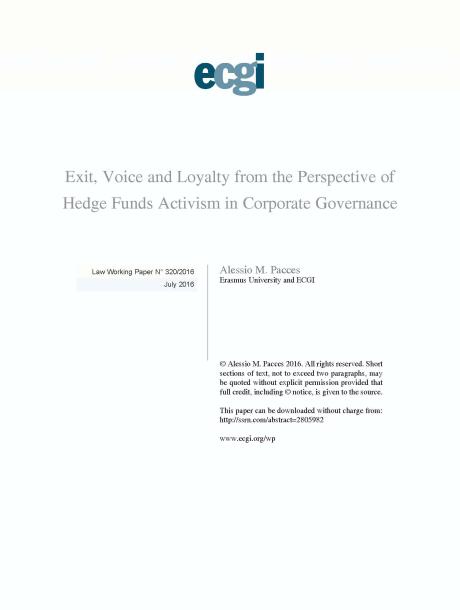
Exit, Voice and Loyalty from the Perspective of Hedge Funds Activism in Corporate Governance
Abstract
This article discusses the policy response to hedge funds activism in corporate governance based on Hirschman?s classic: Exit, Voice and Loyalty. From that perspective, the article argues that hedge funds do not create the loyalty concerns underlying the usual short-termism critique of hedge funds activism, because the arbiters of such activism are typically indexed funds, which cannot choose short-term exit. Nevertheless, the voice activated by hedge funds can be excessive for a particular company. Furthermore, this article claims that the short-termism debate cannot shed light on the desirability of hedge funds activism. Neither theory nor empirical evidence can tell whether hedge funds activism systematically leads to short-termism or whether its absence lead management to the opposite bias, namely long-termism. The real issue with activism is a conflict of entrepreneurship, namely a conflict between the opposing views of the activists and the incumbent management regarding in how long an individual company should be profitable. Leaving the choice between these views to institutional investors is not efficient for every company at every point in time. Consequently, this article argues that regulation should enable individual companies to choose whether to encourage or to curb hedge funds activism depending on the efficient time-horizon given the firm?s lifecycle. The recent European experience reveals that loyalty shares enable such choice, even in the midstream, operating as dual-class shares in disguise. However, loyalty shares can often be introduced without institutional investors? consent. This outcome could be improved by allowing dual-class recapitalizations, instead of loyalty shares, but only with a majority of minority vote. This solution would screen for the companies for which temporarily curbing activism is efficient, and induce these companies to negotiate sunset clauses with institutional investors.









